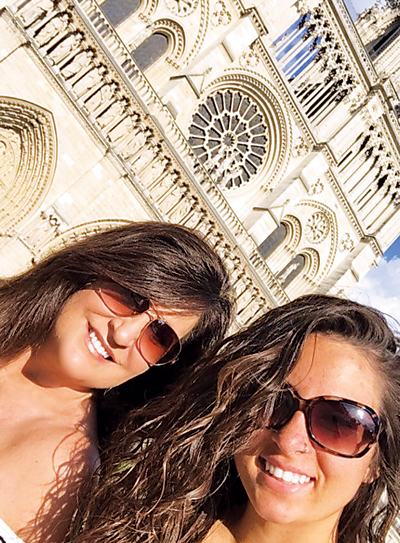I WAS A HOSPITAL PATIENT IN A FOREIGN COUNTRY – For Your Health

My daughter and I were able to do something many people only dream about; we spent two weeks in France. The memories we made were priceless but there was one experience during our trip that we didn’t plan on.
On day four of our visit, we were on a 15-mile bike ride. About five miles in, I crashed. My friends bandaged my skinned knee and elbow, then attempted to get me off the trail. I immediately knew I had broken ribs. When the ambulance arrived, my friends translated as the paramedics did not speak English. They recommended that I go to the nearest ER to rule out internal injuries. As a Registered Nurse for 30 years, I knew what to expect as a patient in the United States, but I had no idea what to expect in France.
The paramedics did an amazing job attending to me. We communicated mostly through Google Translate but it was still challenging to describe my pain and health history. I couldn’t help but worry that there may be an increased risk for error due to the communication barrier.
We arrived at a small hospital in Tours and they wheeled me into the emergency room. I explained that I was American, an ER nurse and spoke little French. The ER doctor completed my assessment as best he could, again while using Google Translate and laughed a time or two as we tried to communicate. As word got around that I was an American nurse, other staff stopped by, interested in the differences between their small hospital and an American hospital.
In an American hospital, if there is a language barrier, we find a translator to help us. This was not an option for me. Additionally, the hospital did not have air conditioning and the windows were open but there were no screens. Privacy was nil, as there were no dividers between patients in the ER.
Probably the biggest difference was regarding pain management. With four broken ribs and an injured shoulder, all they would give me was non-opioid medication such as Tylenol. On the contrary, many times in America we will first offer a narcotic for immediate pain relief/comfort. I was actually impressed by this practice because opioid addiction and abuse is such a problem in our American society.
During the night, I was in severe pain and I asked them for something stronger. With hesitation, they gave me morphine. This made such a difference for me and I was able to sleep without pain. During discharge the next day, they gave me three prescriptions; Tylenol, Ultram and Morphine. I found it confusing that they hesitated in giving me Morphine while in the hospital under supervised conditions, but wrote me a prescription for it to take home.
As a patient in a foreign country, I was very scared. As a nurse, it put a lot into perspective as to how our non-English speaking patients must feel. Communication is so important, especially when it comes to providing appropriate medical care. Even with the huge language barrier, the majority of the staff in Tours France was wonderful to me. Although this experience was not on my vacation agenda, it was certainly a learning experience.
- Local Families Volunteer Together To Fight Hunger - November 24, 2023
- Neighbors Volunteer At Community Harvest SeniorPak Program - September 1, 2023
- Two Local Churches Add Community Recreation ~ Community Spotlight - October 21, 2022


